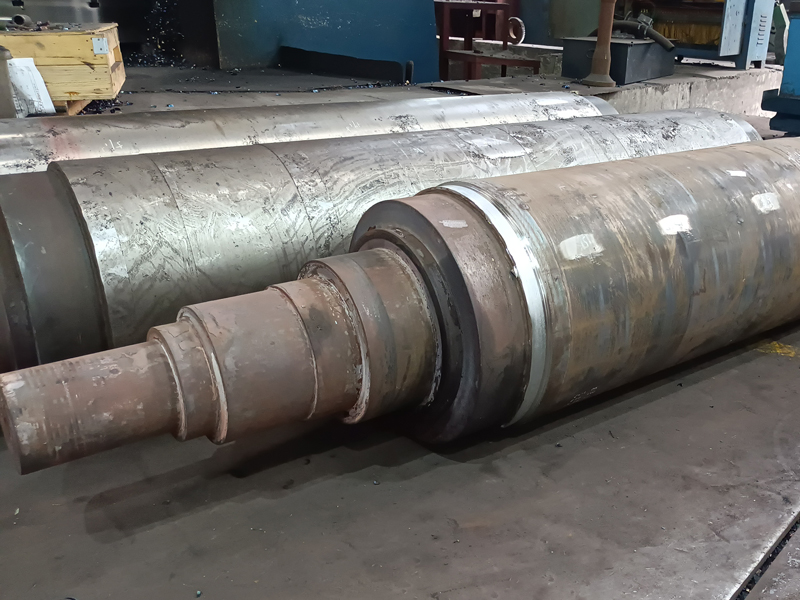Alloy steel forgings are made by adding other alloying elements in addition to iron and carbon. A ferrocarbon alloy formed by adding an appropriate amount of one or more alloying elements on the basis of ordinary carbon steel. By adding different elements and adopting hot forgings techniques, special properties such as high strength, high toughness, wear resistance, corrosion resistance, low-temperature resistance, high-temperature resistance, and non-magnetic properties can be obtained.

Quenched and tempered alloy steel forgings characteristics
Performance:
After quenching and tempering, the alloy steel forgings have a combination of high strength, good plasticity and toughness, which means it has good comprehensive mechanical properties.
Chemical composition:
The forged alloy steel blanks have a carbon content is 0.3-0.5% with alloy elements mainly including Cr, Mn, Ti, Mo, etc., is mainly used to improve hardenability, refine grains, and prevent overheating.
Heat treatment:
Pre heat treatment is annealing or normalizing, and final heat treatment is quenching+ high-temperature tempering.
Alloy steel forgings common steel grades:
AISI 4140 steel forgings
AISI 4130 steel forgings
AISI 4340 steel forgings
42CrMo steel forgings
42CrMo4 steel forgings
21CrMoV5-11 steel forgings
18CrNiMo7-6 forgings
H11 steel forgings
H13 steel forgings
1.7225 steel forgings
40Cr steel forgings
65Mn steel forgings
Alloy steel forgings application:
Forged alloy steel blanks are with various special properties such as high strength, high toughness, wear resistance, corrosion resistance, low temperature resistance, high temperature resistance, and non-magnetism. They have a wide range of applications, mainly including the following aspects:
Automobile making
Alloy steel forging is used to manufacture engine blocks, crankshafts, pistons, and various components of automobiles.
Machinery manufacturing
Alloy steel forging is used to manufacture gears, gear shafts, connecting rods and worm gears, etc.
Shipbuilding
Alloy steel forging is used to manufacture ship main shafts, large gears, sprockets, pistons, tubes etc.
Petrochemical industry
Alloy steel forging is used to manufacture various valves, fittings, and containers, which can improve the reliability and service life of equipment.
Alloy elements influence:
Chromium (Cr):
In structural steel and tool steel, chromium can significantly improve strength, hardness, and wear resistance, but at the same time reduce plasticity and toughness. Chromium can also improve the oxidation resistance and corrosion resistance of steel, making it an important alloying element for stainless steel and heat-resistant steel.
Nickel (Ni):
Nickel can improve the strength of steel while maintaining good plasticity and toughness. Nickel has high corrosion resistance to acid and alkali, and has rust and heat resistance at high temperatures. However, as nickel is a relatively scarce resource, other alloying elements should be used instead of nickel chromium steel as much as possible.
Molybdenum (Mo):
Molybdenum can refine the grain size of steel, improve its hardenability and thermal strength, and maintain sufficient strength and creep resistance at high temperatures (deformation occurs due to long-term stress at high temperatures, known as creep). Adding molybdenum to structural steel can improve its mechanical properties. It can also suppress the brittleness of alloy steel caused by quenching. In tool steel, redness can be improved.
Vanadium (V)
Vanadium is an excellent deoxidizer for steel. Adding 0.5% vanadium to steel can refine the grain structure, improve strength and toughness. The carbides formed by vanadium and carbon can improve their resistance to hydrogen corrosion under high temperature and pressure.
